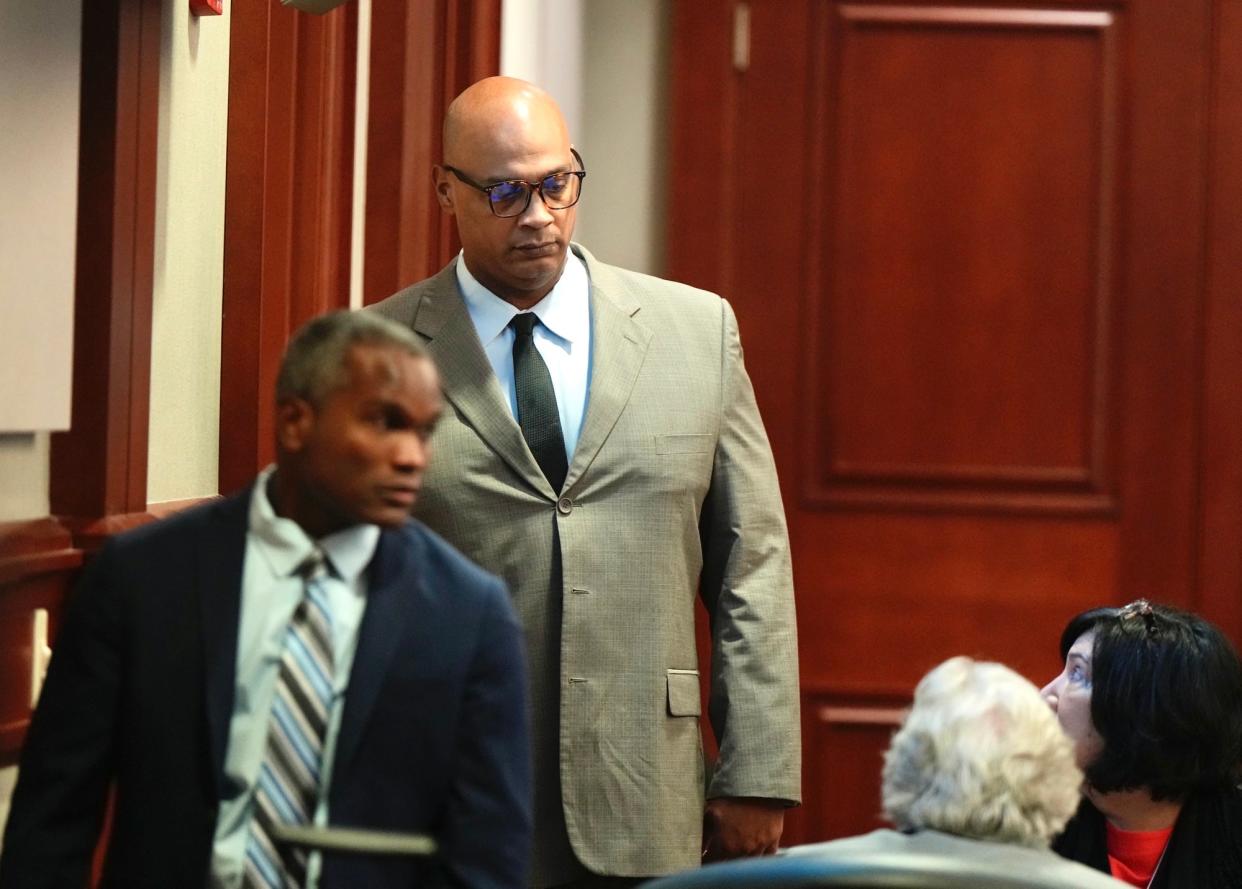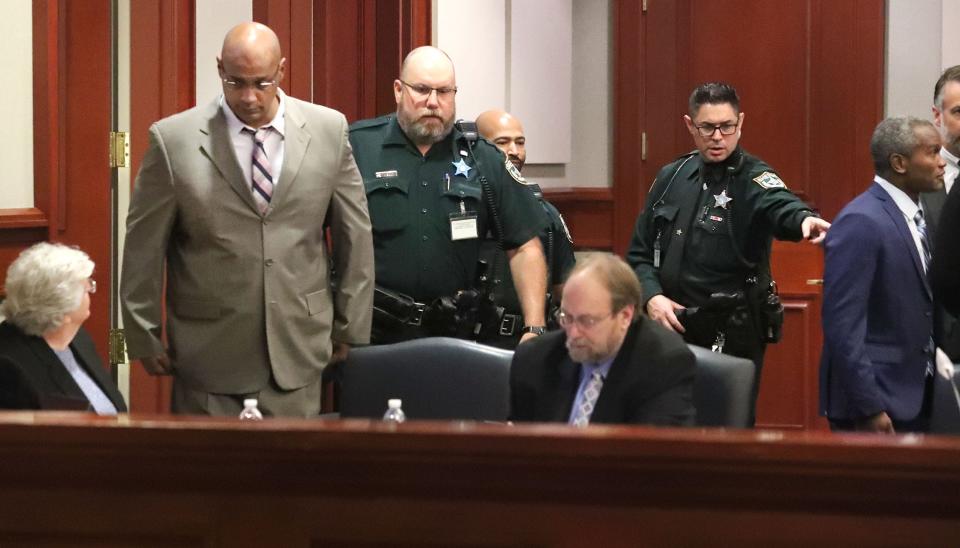Appeals court issues opinion on Deltona Xbox murder case

The 5th District Court of Appeal issued an opinion explaining its earlier ruling that only eight jurors were needed to recommend the death penalty in the resentencing of two men convicted in the Deltona Xbox mass murders.
The appeals court in Daytona Beach had already ruled May 11 that the new state law requiring at least eight of 12 jurors to recommend death for a judge to impose the death penalty would apply in the resentencing of Troy Victorino and Jerone Hunter.
But the court had stated then that it would "subsequently" issue an opinion. It did so Friday.
Victorino, 47, and Hunter, 37, had been convicted and initially sentenced to death in 2006 for their roles in the 2004 Deltona Xbox mass murder.
Killed in the massacre were Erin Belanger, 22; Michelle Nathan, 19; Roberto "Tito" Gonzalez, 28; Jonathan Gleason, 17; Francisco "Flaco" Ayo-Roman, 30; and Anthony Vega, 34. A dog was also killed.
Besides Victorino and Hunter, two other men, Michael Salas and Robert Cannon, took part in the massacre in which they broke into a home on Telford Lane and used bats and knives to beat and stab the six to death on Aug. 6, 2004.

Salas was also convicted at trial but was sentenced to life. Cannon did not go on trial but reached a plea deal in which he agreed to testify against the others in exchange for a life sentence. He later refused to testify during the trial. Cannon was sentenced to life.
Victorino and Hunter were sentenced to death at a time when only a 7-to-5 jury recommendation was required. A 2016 Florida Supreme Court ruling required a unanimous jury recommendation, leading Circuit Judge Randell Rowe III to strike down their death sentences.
But the state Supreme Court later ruled again, this time that a unanimous recommendation was not needed. This year a new state law took effect April 20 requiring an 8-to-4 death recommendation. That was the same day that 15 jurors, including three alternates, were sworn in to resentence Victorino and Hunter in DeLand.
The resentencing of Victorino and Hunter was halted April 27 after testimony had begun as the state challenged Rowe’s ruling to use the previous law requiring a unanimous recommendation. The jurors were sent home to await a ruling from the 5th District Court of Appeal.
The appeals court ruled against Rowe on May 11, saying that the new law applied. But by then some jurors had run out of time, as events like pre-paid vacations or scheduled medical procedures approached on their calendars.
Judge Rowe declared a mistrial, noting that some jurors would be unavailable.
Prosecutors have said they plan to resentence the pair next year.
Court explains its Deltona XBox mass murder ruling
In the opinion released on Friday, the 5th District Court of Appeal rejected defense arguments that it did not have jurisdiction in the case, according to the opinion from a three-judge panel written by Judge Harvey L. Jay. The opinion stated in part that since the trial court had not entered a final judgement imposing the death sentence, the state Supreme Court’s exclusive jurisdiction was not invoked.
The appeals court stated that if applying the previous law was the wrong decision, prosecutors would be unable to appeal that because once a defendant was "acquitted" of a death sentence, he or she cannot be subjected to that sentence again. But a defendant can appeal a death sentence.
The appeals court also found that applying the new law would not violate U.S. and state constitutions against "ex post facto" laws, which criminalize or enhance penalties for conduct that has already occurred. The appeals court stated that a procedural change, including one to the disadvantage of a defendant, is not ex post facto law because “it does not alter substantive personal rights,” according to the ruling.
The appellate court ruled that the new law does not change the definition of criminal conduct or increase the penalty and was a “quintessentially procedural change that has no substantive effect,” the ruling stated.
The appellate court stated that it was “irrelevant” that the current version of the law took effect after the start of jury selection. “Criminal jeopardy attaches when a jury – not a group of prospective jurors – is sworn,” the court ruled.
The appellate court stated that the judge, the lawyers and at least some of the prospective jurors were aware that the law might change even before the final panel was sworn in. The appellate court found that the attorneys made strategic decisions, such as limiting or not questioning potential jurors, to increase the chances that the version of the statute they preferred would be used.
“They were neither blindsided by the change in the law nor were they denied opportunities to argue why it should not apply to that proceeding or to question prospective jurors about their own views on the new law. Due process guaranteed them those rights, but it does not guarantee them success on the merits,” according to the opinion from the appeltate court.
Appeals Judge Brian D. Lambert concurred and noted that the current law is tougher than the one in place when Victorino and Hunter committed the murders which at the time required only a vote of 7 to 5.
Appeals Judge John M. Harris agreed that the new law should apply but said that the prospective jurors were told repeatedly that a unanimous vote would be necessary. Harris wrote that the prospective jurors' reaction to the new law was unknown in part because Rowe did not allow additional questioning of the jurors. Harris wrote the situation could have been remedied by allowing limited additional questioning of jurors or restarting jury selection.
This article originally appeared on The Daytona Beach News-Journal: Deltona Xbox murders: Appeals court issues death penalty opinion

